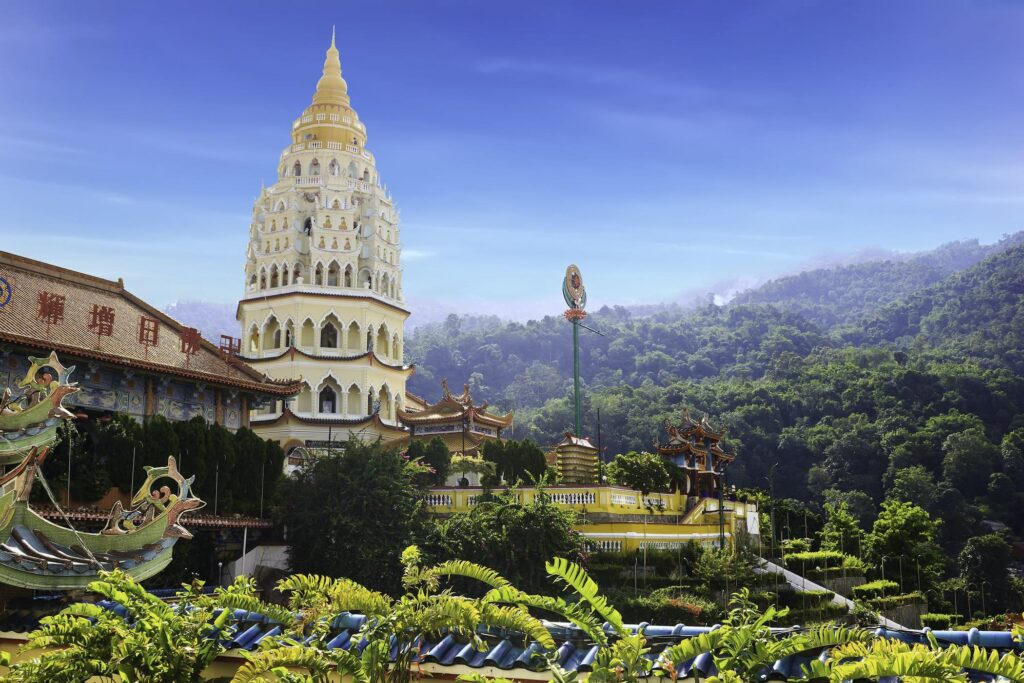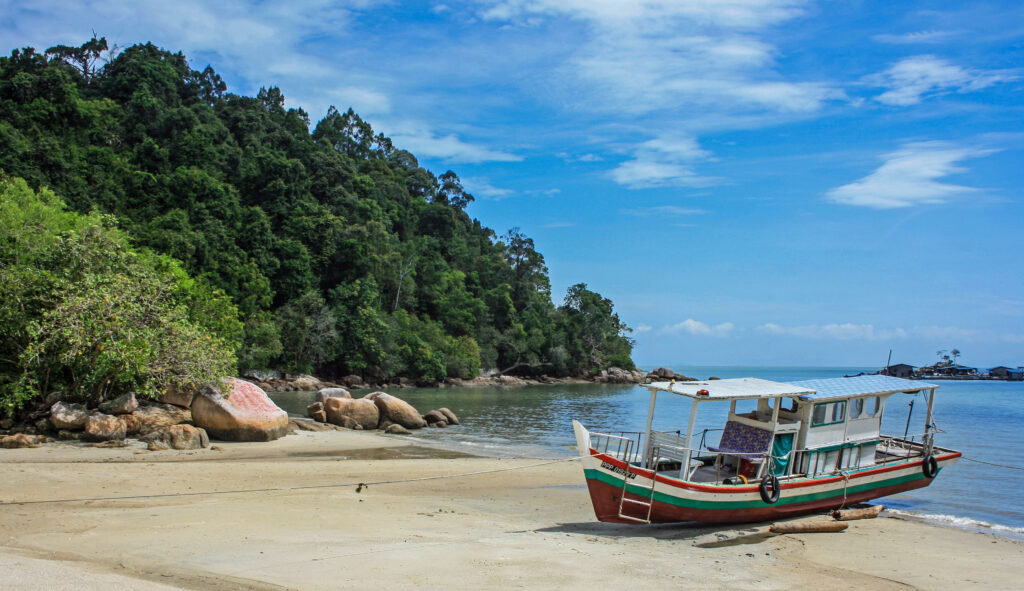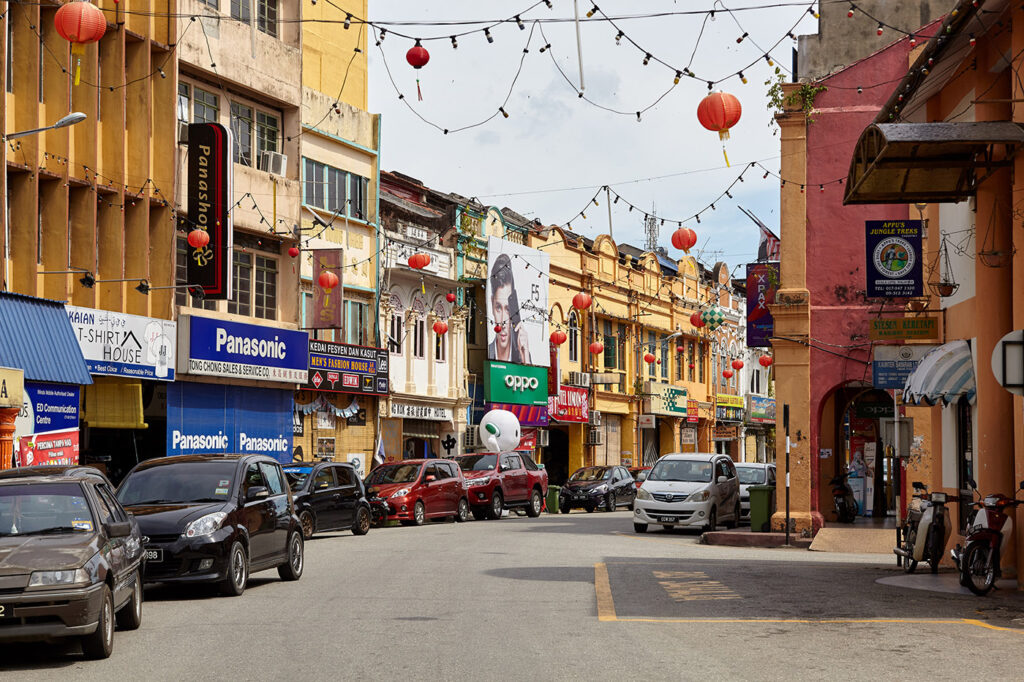What are the best international schools in Penang, Malaysia – that will be the topic of today’s article.
Before introducing this article, if you are interested in our core services which are expat financial, insurance and mortgages, you can contact me here.
The best time to consider your financial situation is when you are moving to a new country.
Introduction
Malaysia has long ceased to be a third-world country. The standard of living in this dynamically developing country is ahead of neighboring Asian countries in many respects. Life in Malaysia attracts with a stable salary, a high exchange rate of the local currency, as well as affordable prices and loans.
The salary in Malaysia for foreigners is higher than similar rates for local residents. On average, you can expect to receive a monthly salary of between MYR 4,000 and 9,000 (1,000 to 2,700 USD). Prices here are higher than in Thailand or Vietnam, but an order of magnitude lower than European ones. For example, a comfortable three-room apartment with a swimming pool can be found for $ 300-400 per month.

This interesting exotic country is located in Southeast Asia and consists of two parts, separated from each other by the South China Sea. The western part of Malaysia is the most developed, so about 80% of the local population lives there. Eastern Malaysia is less populated but retained the remains of an evergreen tropical forest.
The capital of this small state is the city of Kuala Lumpur. The indigenous population is represented mainly by Malays and Chinese. Islam is practiced on the territory of the country. The state is actively producing oil, developing agriculture, and tourism. In addition, a fairly large number of electronics and household appliances are produced here. Malaysia is ahead of its Southeast Asian counterparts in economic development.
Let’s try to assess whether Malaysia is suitable for many Europeans to live in. Some of our compatriots go there for permanent residence, hoping it is there to catch their luck by the tail, and some go to this tropical country for “wintering” to survive the harsh winters.
The advantages of living in Malaysia

- Good knowledge of English by the local population. For quite a long time Malaysia was a British colony, which explains the fluent English among the locals. All your requests and wishes can be stated in English, they will understand you and help in solving your problems. Agree, this fact greatly simplifies living in a foreign country.
- Opportunity to find a job. If you have education, little experience and knowledge of English, then most likely you will not have any problems finding a job. In addition, people with white skin color are quite in demand in many hotels and inns, giving them, so to speak, status. English translators are also valuable, as the influx of tourists from European countries is growing from year to year. The professions of teacher, doctor, engineer, programmer, as well as specialists in the field of tourism are in demand.
- Cheap electronics and home appliances. It is locally produced, so the price of these goods is quite affordable. The technique here is considered the cheapest in the world.
- Drivers obey the rules of the road (traffic is left-hand). In comparison with other countries of Southeast Asia, for example, with Thailand, the difference in the behavior of drivers on the road is very large. A pedestrian crossing the road need not fear for his life and health. True, all traffic signs are exclusively in Malay.
- Malays treat expats well. As a rule, residents of multinational states show tolerance towards newcomers. In addition, the local population is friendly, hospitable, welcoming and ready to help if necessary. The opportunity to feel “at ease” is worth a lot.
- Low crime rate. In Malaysia, you can feel calm and not worry about your safety. Alcohol is very expensive here, as in most Muslim countries, so the number of offenses on this basis is minimized. True, sometimes there are pickpockets. But compared to the level of crime in other countries, the crime situation in Malaysia is quite calm.
The disadvantages of living in Malaysia

- Difficulties in obtaining citizenship. Most expats have a work visa. To obtain a visa, the applicant must be at least 27 years old. After several years of residence in the country, you can obtain resident status. Dual citizenship is prohibited by local law. It should be noted that most of our compatriots are in no hurry to part with European citizenship.
- Dirty cities. Local towns and cities have a very unsightly appearance. Cleanliness is clearly not remembered here. Rats and bad smells on the streets are found in almost all countries in Southeast Asia, and Malaysia is no exception. For the sake of fairness, we note that garbage on the sides of the roads is a very common phenomenon in the vastness of our Motherland.
- Exotic cuisine. Local culinary delights will not be to the taste of a European due to the specificity of the raw materials and the large amount of spices. Milk and dairy products are practically not used locally. Bread is also exotic. If we talk about Chinese cuisine, which is also present here, then there is a lot of fatty and fried in it. But if you like rice, then it will be easier for you to adapt to the local cuisine.
- Poor quality of roads. Perhaps most Europeans will not feel much of a difference. Many countries’ roads do not please motorists with their quality. Apparently not only European countries is famous for its bad roads.
- Smog from forest fires. Not all is well with the environment in Malaysia. Rainforests are being cut down mercilessly to clear new oil palm plantations. In addition, old oil palm plantations are burned and new ones are planted. And so, in a circle. But smog in Malaysia is not only “of its own production”, sometimes it is brought by the wind from Indonesia, where fires often occur.
Education in Malaysia
Malaysia is a modern multicultural country, and, importantly, a former English colony, where English has been the language of government for a long time. Today, English plays an important role in the country as a second language, and, to a greater extent, finds its application in the field of education.
Malaysia is a country with high rates of economic growth and a high standard of living, but low prices for education and living. According to the Global Peace Index in 2011, Malaysia is the safest country in Southeast Asia and the 19th safest country in the world, which makes it even more attractive for international students seeking quality education abroad.
- Preschool education in Malaysia, as a rule, is provided by both private institutions and public ones, which are run by the government and / or religious organizations. Preschool education lasts 2 years, children enter school at the age of 5 years.
- It is due to the fact that Malaysia has been an English colony for a long time, the school system here is built according to the British system, and consists of primary (grades 1-6) and secondary education (grades 7-12). Therefore, it is not surprising that there are a lot of foreign children and students among the students.
- Primary education begins for Malaysian children at the age of 7 and lasts for six years. There are two types of schools that are run by the government or are under state control: national schools teach Malay as the main language, national schools teach Tamil or Chinese as the main language. At the end of the 6th grade of primary school, students take a compulsory test to determine knowledge in philology (spoken and written Malay, English), natural sciences and mathematics.
- Secondary education in Malaysia is received in secondary schools, boarding schools and private schools for 5 years. The main language of instruction is Malay, but English is compulsory. In addition, the required languages are Chinese or Tamil, depending on the nationality of the students. Arabic, Japanese or French can be studied as a foreign language. It is important that in government primary and secondary schools, subjects such as mathematics, biology, physics, chemistry are taught in English, as it is believed that students will not be hindered by language barriers during their subsequent education in various fields. In addition to national schools, Malaysia has international schools that offer students the opportunity to study the curriculum of the country in which they plan to study in the future and greatly facilitates the process of adaptation of foreign students to Malaysia. Upon graduation, graduates pass written final exams that are uniform for the whole country. After graduation, graduates can study at private colleges. Most of these colleges are in partnership with overseas educational institutions, in particular in countries such as the US, UK and Australia.
In this article, we will mainly talk about the best international schools in Penang, which is one of the biggest cities in Malaysia.
Malaysia has worked hard in recent years to attract skilled and educated immigrants to its cities. Kuala Lumpur or Johor Bahru might come to mind as favorite Malaysian enclaves for expats. But Penang, farther north and smaller than both, has just as much to offer.
This is especially true for expat families. Penang is less crowded, with many beaches and, despite its smaller size, a good selection of international schools.
The international school scene in Penang is smaller than in other Malaysian cities, but there is less competition here. Waiting lists are common, but if you get your name on the list as early as possible, you are unlikely to be disappointed. In fact, many schools charge a non-refundable registration fee to keep waiting lists from getting too long.
Penang has two parts; Penang Island and Seberang Perai on the mainland. Most of the international schools are located on the island of Penang. You will find a small number of schools in the island’s capital, Georgetown, but there are even more choices in the north, at Tanjung Bunga and Tangjung Tokong.
School buses are common at Penang international schools, but there is an additional charge for this service that is not included in your annual school fees. Keep in mind that it takes less than an hour to travel around the island by road in regular traffic – Penang is not big! So if you live in the same area as your chosen school, you don’t need to worry about travel time.
As in the rest of Malaysia, Penang’s international schools are dominated by the British curriculum. The choice here is not as varied as in Kuala Lumpur or Johor Bahru – apart from British or American study programs and an International Baccalaureate, nothing else is offered.
As far as the quality of education is concerned, there is little cause for concern. International schools in Malaysia are administered by the Department of Private Education (PED) of the Ministry of Education. PED is known for being strict and imposes huge fines for almost any violation.

In addition, Malaysia has a plan to become a high-income country within the next decade. Part of this plan is to attract a constant flow of skilled workers from abroad, which means that a constant flow of quality international schools is required.
As with most destinations in Africa, and you can find your chosen international school in one of the Malaysian cities – Penang, which will have great facilities, native English-speaking teachers, extensive extracurricular activities, and all the other usual bells and whistles.
Malaysia’s plan has been successful so far; The number of expats is growing throughout the country, including Penang. So if you are planning to move here in the next couple of years, keep an eye out for new international schools to open.
In Penang, there are about 11 international schools. Let’s now review some of them and try to help you to choose one of them.
Tenby Schools Penang
At all Tenby schools, they apply a holistic, fact-based philosophy designed to shape the character of students and empower lifelong learning experiences. With extensive experience in delivering international quality education, their teachers can challenge students on a one-to-one basis, allowing them to continually encounter experiences that propel students towards true learning breakthroughs.
The Penang campus was built in 2011 and includes both international (Tenby International School) and Malaysian national (Sekolah Sri Tenby) schools. The purpose-built campus has a variety of academic resources complemented by the latest technology to support the curriculum and classrooms.
The school’s reputation as one of the best schools in the area is built on a strong focus on providing students with a broader experience by encouraging participation in events such as the Duke of Edinburgh International Prize, Model United Nations, International Travel, and more.
At Tenby Schools Penang, they offer a flexible academic structure that allows you to choose between the international (Tenby International School) and Malaysian national (Sekolah Sri Tenby) schools as students progress over the years.
The Early Years program is the starting point for all children ages 3 and older, followed by the Primary Years program at Tenby International School, which starts at age 5. Then, between ages 7-16-17, students and their parents can choose Tenby International School or Sekolah Sri Tenby with their Sixth Form (ages 16+) program, open to students from both schools, subject to meeting the required academic and language standards.
Fairview International School Penang

Fairview International School is Malaysia’s largest network of IB World Schools with campuses located in Kuala Lumpur, Subang Jaya, Ipoh, Penang, and Johor Bahru. The International School is also represented in Scotland. This school is a candidate for the IB World School and all schools in Malaysia are certified IB World Schools offering quality education. Flagship School Fairview Kuala Lumpur is the oldest and largest IB school in Malaysia.
Fairview International School in Malaysia is synonymous with academic excellence, integrity, and lifelong opportunity. Founded in 1978, this school is one of the most affordable international schools in Malaysia offering a comprehensive IB program. It has been named one of Malaysia’s Top 10 International Schools by many internationally renowned educators, and since its inception, Fairview has raised thousands of children from Asia’s best and most influential families.
Currently, Fairview, a very popular private school in Malaysia, has over 2000 students from over 65 different countries and offers IB Primary, Middle Years, and Diploma programs around the world.
St. Christopher’s International Primary School
St. Christopher’s International Primary School (SCIPS) was founded in 1963 with the aim of providing a broad and balanced UK curriculum tailored to the needs of their diverse community.
St Christopher’s hostel, home to over 32 different nationalities, provides international elementary education in a caring and caring environment. Even though the school has more than 580 children, the school retains the atmosphere of a “small” international school with a strong sense of family.
St. Christopher’s is a non-denominational, non-profit school and we are very proud of their history and achievements. They recognize that their greatest strength has always been the quality of their relationships with families and the dedication of their faculty.
Their goal is to foster a love of learning that prepares students for the next steps in education.
Their personal goals are characteristics that they believe will be important to children as they grow up to be versatile. These goals are aimed at developing a positive attitude towards behavior and learning.
Your child will have many opportunities to experience and realize these goals as they are built into everything they do.
Prince of Wales Island International School (POWIIS)
Recognized all over the world, the Prince of Wales Island International School (POWIIS) strives to continually engage students and deliver lessons no matter the situation. Their schools offer a wide range of subjects backed by a strong team of pastoral care, and a university consultant provides the students with an academic pathway from junior grades to IGCSE and A-Level.
The Prince of Wales Island International School (POWIIS) has quickly built a reputation as one of Malaysia’s most significant private schools locally, nationally, and internationally.
Located in a green, safe and peaceful area of Balik Pulau, Penang, Malaysia. POWIIS offers a broad and balanced education based on the English National Curriculum with boarding options for high school students aged 11-18. In September 2019, their new purpose-built elementary school for children ages 3-11 opened at Tanjung Bunga (Penang), undoubtedly the preeminent elementary campus in the region.
POWIIS now uniquely offers two purpose-built campuses, each offering excellent learning and age-appropriate facilities to ensure every child is on the right path to success.
Founded in 2011, POWIIS has grown rapidly to become one of the most prestigious and successful days and boarding schools in Southeast Asia. They are a culturally diverse but close-knit community where students, staff, and parents work together in a safe and happy environment.
Through a combination of academic rigor and caring shepherding, POWIIS offers its students “an adventure for their minds and a home for their hearts.”
Their academic performance is outstanding, but at POWIIS they know that success in life goes far beyond exam grades. POWIIS students are encouraged and supported to learn where their abilities and talents lie, be it mathematics or science, languages or humanities, arts, sports, or community service.
Their students have many opportunities to participate in collaborative learning activities locally, regionally, and internationally, as well as develop all the skills and attributes needed to confidently advance within and beyond the university.

To sum up
Above we gave you the overviews of the best Malaysian international schools in Penang. Penang is a state in northwest Malaysia, has always been well known as a travel destination for its unique features such as beautiful scenery, rich cultural heritage, delicious food, and modern medical equipment. Those who decide to move to Penang because it offers them ideal conditions for raising children. So you can fully trust these schools as they can really give your child a good education and a full package of skills.


